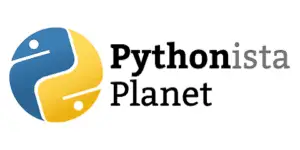Python has got the highest growth potential in recent years. An entry-level Python developer can earn approximately $65,000/year, and an expert can earn a minimum of $114,000/year, depending upon experience.
Some statistics say there are more Python developers than Java developers. JetBrains has announced another statistic saying the number of people learning Python is higher than the number of people learning Java.
This information means that there is a huge market available for Python developers. But at the same time, it also creates a requirement for Python developers to outshine other fellow developers. This competition among existing developers makes it difficult for newcomers to compete.
In this article, we will learn how to get a job as a Python developer with no experience, how to outshine your competition, and different ways to apply for jobs. Let’s dive right in.

Be Strong in Your Foundations
Having strong coding foundational knowledge is important. Most people try to learn advanced concepts and topics that even people in the industry are not quite familiar with. But in reality, for a person with no experience, the recruiter tries to check if the developer has strong foundational knowledge.
As a Python developer, you need to be strong with concepts like object-oriented programming, functions, classes, lists, tuples, strings, loops, data types, operators, conditional statements, and problem-solving.
Developers with hands-on practice and strong knowledge of these topics have better chances of getting jobs than those who are learning advanced topics without a strong foundation.
Competitive coding is a powerful way to test the skills and syntaxes you learned from the beginning. It helps you to prepare for your interviews. Competitive coding tests your logical skills, how to optimize your code, and how to reduce the time taken to solve a problem. You can learn competitive coding in any programming language.
If you can’t decide whether to use Python or not for practicing competitive coding, do check this article here, which will provide a clear explanation of the pros and cons of choosing Python for your competitive coding practice.
Find Your Field of Interest
Python is a versatile language. It has created a large empire by being a part of different domains of computer science. This allows Python developers to dive into various fields with knowledge about a single programming language.
Python is a top choice for data science as it is easy to code and takes less time to code. Python has abundant modules to assist you in your data science journey.
Python can be used to build web applications. Popular frameworks like Django and Flask created a huge market for Python developers in the web development field. You have to additionally learn HTML, CSS, and Javascript to stand out from other Python developers.
Python is also used in game development, mainly for prototyping and building small games. Check out this article to know if Python is good for game development.
Python can be used for several other use cases like web scraping, desktop applications, blockchain, mobile app development, and many more. If you have enough time for preparation, you can experiment with different fields and figure out the one that suits your interests.
If you don’t, pick a field, develop your skills, and become the best in that field. If you are interested to know in detail about the fields of computer science that a Python developer can explore, do check this link here.
Do an Internship
Internships are a great way to experience the reality of the IT industry and a chance to gain hands-on experience in the industry. Even though internships pay less compared to jobs, it is easy to get an internship over a job.
So if you struggling to get a job, try applying for internships. This is a great idea because most companies will be more than happy to convert your internship to a full-time job if they like your work.
There are paid and unpaid internships. Apply to these carefully and understand the job role you are taking because they are many scandals happening online by wasting your time and energy over something that you cannot learn or benefit from. Interning in a well-established company is much safer, and it is also good for your resume.
Participate in Coding Competitions and Hackathons
Competitions are a great way to test your skills and competitive coding ability. They help you test your logical thinking within the time-space given and how efficiently you produce the result.
Many companies conduct competitions yearly to recruit developers who top the ranking. These are good opportunities to get placed in a job. Even if you don’t get a job offer, you might learn something from it, and you can try it out in the next ones.
Build a Strong Resume
A resume is a powerful paper that creates the first impression about the job applicants for the recruiter. Thousands of people apply for a job, and as a prescreening process, most companies use the resume as a judging criterion to filter out the crowd. So creating a strongly worded, neat, and clear resume is important to get a job.
You can use commonly used templates online. Websites like novoresume provide their default template, and we can personalize it. However, having a beautiful resume with no content that stands out is useless.
To make your resume strong, you can add your skills, experiences in working on various projects and internships, the languages and tools you know, the position of responsibilities you held before, volunteering experiences, competitions you participated in and won, etc.
Campus Placements
If you are studying in college, there is no better way to get a job than placements. On campus, placements are a hub of employers trying to find the best employees for their company. If you follow the above methods, you can easily get placed in a company.
Be strong in aptitude, logical reasoning, data structures and algorithms (DSA), computer networks, and operating systems. Be strong in any one programming language and a field of computer science to exhibit your talent. The above list can vary depending on the company.
If you did not get a good job in an on-campus placement, you can try off-campus placements. Most companies run their off-campus drive on their official websites. Keep a constant look at companies that you are interested in.
You can also apply for jobs through online job portals like Naukri, Angellist, etc. Some companies select candidates based on scores on exams like AMCAT, COCUBES, and ELITMUS. So write these exams if you are trying off-campus to have a better chance of getting a job.
Networking
Connecting with different people is useful in the long run of your career. Connecting with people of your domain and higher officials of the domain can get you a job if there is a vacancy in their place of work or elsewhere.
Companies love this method of getting employees through referrals because someone takes up assurance for the referred, and the budget to advertise and recruit is also reduced.
LinkedIn provides a platform to create your online presence and gives notice about vacancies in jobs, jobs for fresher, and influential people’s posts. Most HRs receive the majority of the job requests on LinkedIn. Learn to use this medium wisely and have an optimized profile on LinkedIn.
Try Freelance Projects
Freelancing is exactly the opposite of a fixed job. You are not employed, but contracted, not stable, sometimes you don’t get work at all, etc. But it is a great way to learn many things for a person with no experience, and it can add value to your resume.
You can do freelancing while searching for a job, and if it hits out well, you can even do that full-time. It’s a win-win situation anyway.
Platforms like Upwork and Fiverr provide easy access to clients that need freelancing, bridging the gap between them. You can teach people to code Python in your community, freelancing site, or even as a tuition center. Freelancing might not be a solution, but it’s a great step to move forward.
Final Thoughts
One final piece of advice I would give to a programmer with no experience is to build your foundation stronger, try to create opportunities, and utilize the opportunities you get in the way. Be a constant learner and never stop exploring new horizons. Eventually, you will get into a job.
I hope you found this post useful and informative. Happy coding!
2 thoughts on “How to Get a Python Job With No Experience”
Leave a Reply
Recent Posts
Modular programming is a software design technique that emphasizes separating the functionality of a program into independent, interchangeable modules. In this tutorial, let's understand what modular...
While Flask provides the essentials to get a web application up and running, it doesn't force anything upon the developer. This means that many features aren't included in the core framework....


Thankyou so much Brother for giving a valuable guidance.
I’m glad I could help you